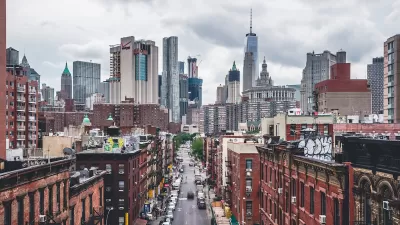Officials in big cities are expressing disappointment that the House-approved climate bill looks to state capitals for guidance, not the metropolitan areas the bill will largely impact.
Feeling "invisible", cities are voicing concerns over the bill's makeup and are hoping to alter its course as it heads to the Senate for consideration in September.
"[T]he House-passed climate bill introduced by Reps. Henry Waxman (D-Calif.) and Edward Markey (D-Mass.) overlooks city experts with experience in adjusting real-life practices, like building and zoning codes, to match shifting climatic problems, they say. Those decisions could require new bridges to be built longer to account for more flooding, for example, or that homes be placed farther away from the sea's rising reach.
'One of the biggest disappointments we have with Waxman-Markey is that cities are absolutely invisible in the bill,' Adam Freed, deputy director of New York Mayor Michael Bloomberg's Office of Long-Term Planning and Sustainability, said last week."
FULL STORY: Big Cities, Major Producers and Victims of Greenhouse Gases, Feel Ignored

Planetizen Federal Action Tracker
A weekly monitor of how Trump’s orders and actions are impacting planners and planning in America.

Map: Where Senate Republicans Want to Sell Your Public Lands
For public land advocates, the Senate Republicans’ proposal to sell millions of acres of public land in the West is “the biggest fight of their careers.”

Restaurant Patios Were a Pandemic Win — Why Were They so Hard to Keep?
Social distancing requirements and changes in travel patterns prompted cities to pilot new uses for street and sidewalk space. Then it got complicated.

Platform Pilsner: Vancouver Transit Agency Releases... a Beer?
TransLink will receive a portion of every sale of the four-pack.

Toronto Weighs Cheaper Transit, Parking Hikes for Major Events
Special event rates would take effect during large festivals, sports games and concerts to ‘discourage driving, manage congestion and free up space for transit.”

Berlin to Consider Car-Free Zone Larger Than Manhattan
The area bound by the 22-mile Ringbahn would still allow 12 uses of a private automobile per year per person, and several other exemptions.
Urban Design for Planners 1: Software Tools
This six-course series explores essential urban design concepts using open source software and equips planners with the tools they need to participate fully in the urban design process.
Planning for Universal Design
Learn the tools for implementing Universal Design in planning regulations.
Heyer Gruel & Associates PA
JM Goldson LLC
Custer County Colorado
City of Camden Redevelopment Agency
City of Astoria
Transportation Research & Education Center (TREC) at Portland State University
Camden Redevelopment Agency
City of Claremont
Municipality of Princeton (NJ)




























